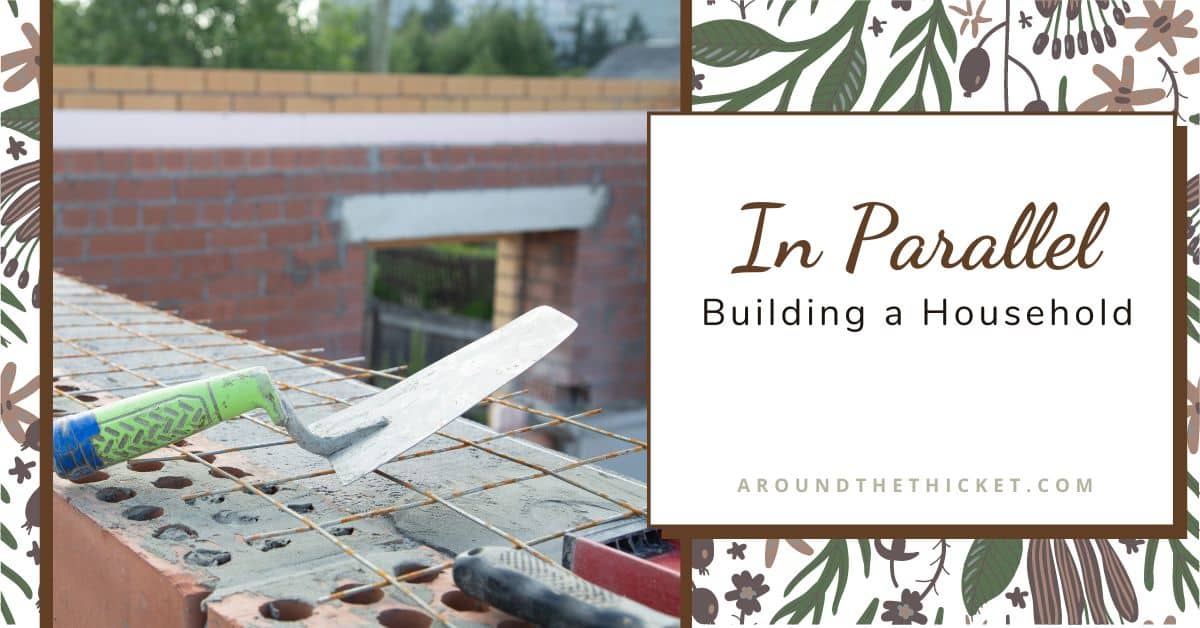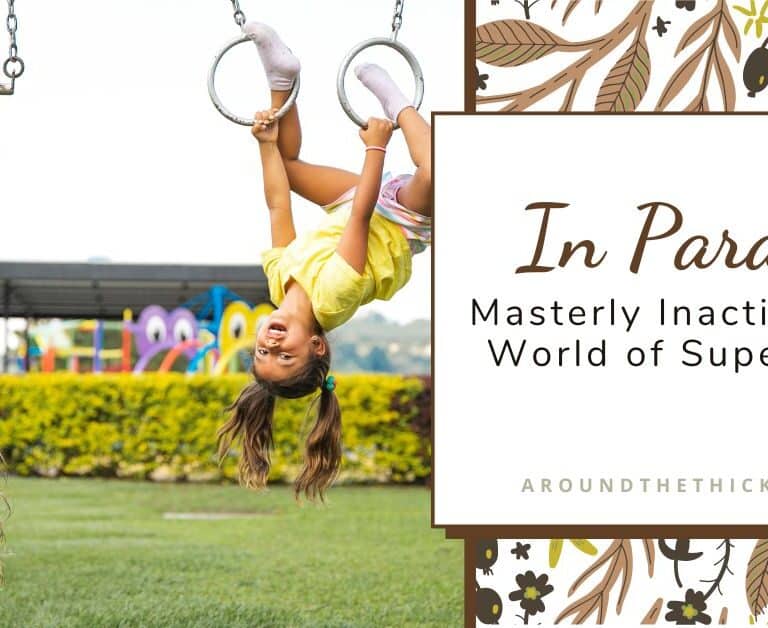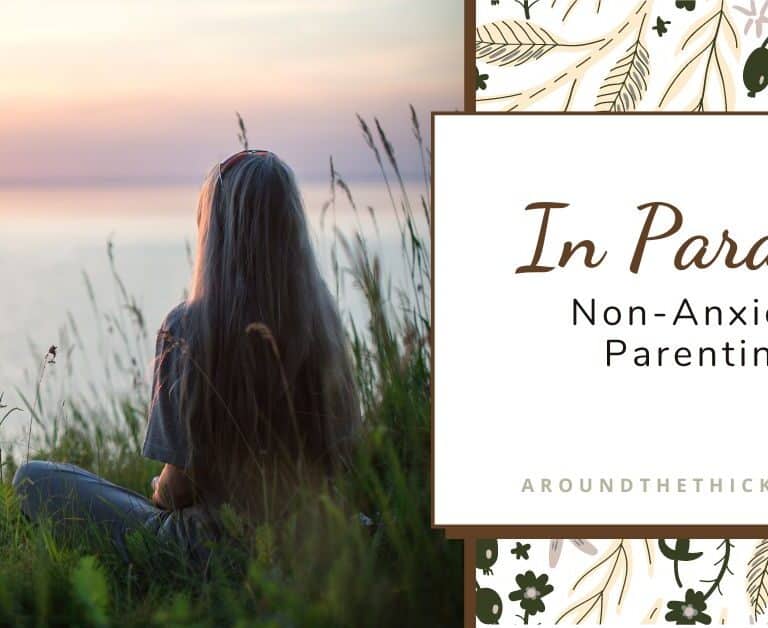In Parallel: Building a Household
My husband and I are coming up to our twelfth anniversary. In terms of marriage length, it still feels like we are babies. My parents have been married for nearly 40 and my grandparents for decades more than that. I hope, though, that babies-in-marriage though we are, we are babies who aim to building something: building a family, a home, a little bubble of culture that will leaven our wider communities.
This week I offer two articles about building. The first is particularly about marriage, and moving away from the idea that marriage is a Big Romance toward the idea that marriage is a Big Partnership. It’s so helpful to look past industrialism for models of healthy marriage relationships. I think a lot about Abigail Adams, holding down the farm as John was away for years and working to make it productive and larger. They are certainly an example of a couple who was able to build far more together as a result of their partnership than either ever could have done individually.
Next I have a book review from Brad East of Andy Crouch’s The Life We’re Looking For. It’s a good overview of the book and I hope it makes you want to read the book itself. The article brings attention to the fact that in the face of all the dehumanizing technology, systems, and structures, we need households, places where we see and are seen as human persons.
To Read In Parallel:
Is There Hope for Marriage? By Mary Harrington at the Institute for Family Studies. You might also find much food for thought on her substack.
“But those families rejecting Big Romance—and with it the overwhelming economic, cultural, and political pressure to be lone atoms in a market—are turning from an inward-focused romantic vision of marriage toward one that prizes stability and productive households as a foundation for community life. Against a backdrop of escalating chaos, they are reimagining marriage in the twenty-first century to fit a new (old) model of the postindustrial household. The postromantic solidarity this convenes, in the long-term interests of both sexes and of our children, provides a basis for real hope.”
Can We be Humans in Meatspace? By Brad East.
To sit with Paul in Corinth, Crouch argues, is to realize not only that another way is possible, but that it is possible right now. It can be imagined and begun in the present, not on some distant day when we have figured out all the details, set our lives into working order, enacted the right policies and elected the right candidates. That day will never come. What we can do now is sit down, with whoever will join us, and get started. Whether or not a revolution follows, and whether it comes in a decade or in centuries, we will have done what we could do in the time we have been given, which is the only thing we can ask of ourselves.
But we should ask it of ourselves.
How has your vision of ideal family life changed over the years? How have you cultivated a household in your home? Has this born fruit outside of your home?
Want to find your feet with the Charlotte Mason Way?

Grab my eight day mini course on the Charlotte Mason Essentials when you subscribe to my newsletter. You’ll get daily emails, a mini podcast series, and a printable workbook with reading assignments and action steps. You’ll be on your Charlotte Mason journey in no time!







